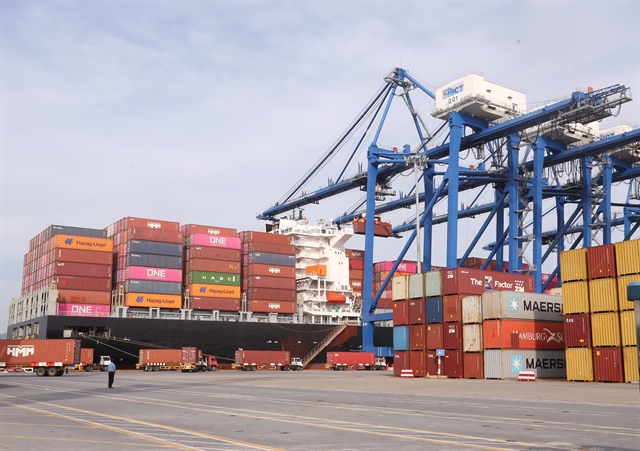 Environment
Environment

People dumping waste on the roadsides and public areas in the districts of Hoàn Kiếm, Ba Đình, and Hai Bà Trưng will be strictly fined, a Hà Nội authority said.
 |
| People dumping waste on the roadsides and public areas in the districts of Hoàn Kiếm, Ba Đình, and Hai Bà Trưng will be strictly fined. — Photo dantri.com.vn |
HÀ NỘI — People dumping waste on the roadsides and public areas in the districts of Hoàn Kiếm, Ba Đình, and Hai Bà Trưng will be strictly fined, a Hà Nội authority said.
Lê Văn Dục, director of the city’s Department of Construction, said the department plans to co-operate with local authorities in the three districts to curb illegal waste dumping by residents.
Violators will be fined VNĐ300,000-400,000 (US$13.3-$17.7) for dumping household waste on the pavement or into the city’s sewage system. Spilling trash while collecting or transporting solid waste will be fined VNĐ5-10 million ($225-$450). Those transporting solid waste to dump in unauthorized places will face the highest fines of VNĐ10-15 million ($450-$675).
The Secretary of Hoàn Kiếm district’s Party Committee Hoàng Công Khôi said the city environment is only cleaned before big events, after which everything quickly returns to the status quo.
Khôi said Hoàn Kiếm is the downtown area of the city, with tourism and other services, so the environment should be kept clean.
He said the district has worked with the Urban Environment Company to collect rubbish three times per day, instead of twice daily. Waste will be collected at 6am-7.30am, 12pm-1.30pm and 7.30pm-9pm. On pedestrian-only streets, waste will also be collected at midnight.
All residents are required to follow the new rules. Those who try to dump waste illegally will be fined.
The committee will disseminate information about the new rules to residents, especially households with businesses.
But Khôi said the VNĐ300,000-400,000 ($13.3-$17.7) fines are not strict enough, and he had proposed higher fines for violators.
Household waste is often dumped on many streets in Hà Nội. Trần Văn Huynh, deputy director of the Hà Nội Urban Environment One Member Co, Ltd, said most households throw big bags of waste on the roads or under trees and assume environmental workers will collect it. Most people used nylon bags for waste, especially sellers in temporary markets.
Hoàng Đạo, lawyer at Hoàng Đạo Law Company, said authorized agencies are not enforcing compliance with the regulations yet. Barriers to enforcement include a shortage of human resources and the complicated method of paying fines, which requires violators to go to the State Treasure’s agency to pay.
The Chairman of the municipal People’s Committee Nguyễn Đức Chung said local district authorities are responsible for informing local residents to throw away waste at the required times. Local authorities have been asked to mobilise staff to ensure compliance with the regulations. — VNS




